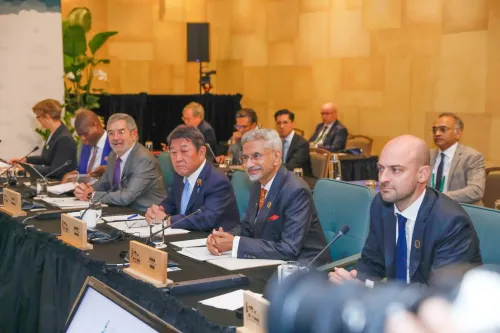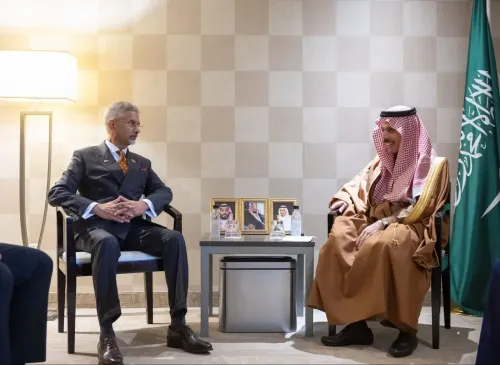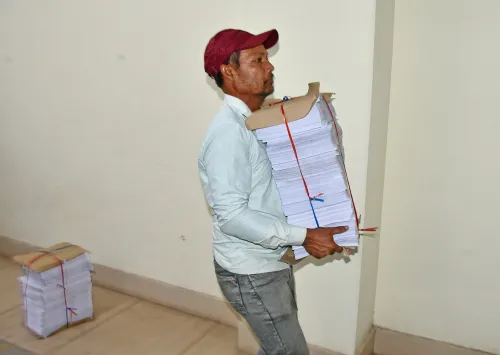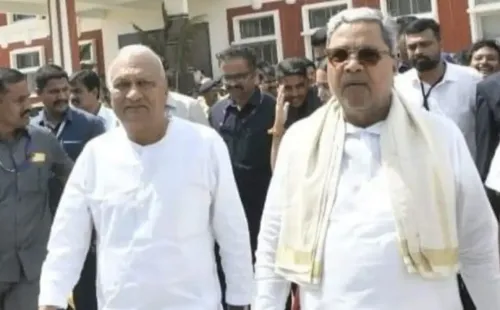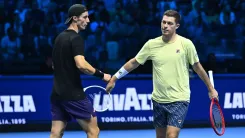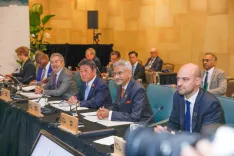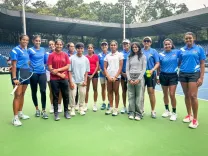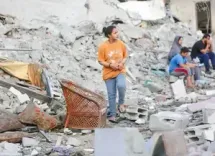Supreme Court Offers Final Opportunity to Centre for Balwant Singh Rajoana’s Mercy Petition
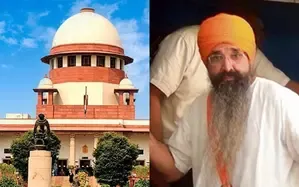
Synopsis
Key Takeaways
- The Supreme Court has given a last chance to the Union government regarding Rajoana's mercy plea.
- Hearing on the matter has been postponed to March 18.
- Rajoana is a death row convict in a high-profile assassination case.
- The case involves complex legal and political sensitivities.
- The apex court emphasizes the role of the Executive in such sensitive issues.
New Delhi, Jan 20 (NationPress) The Supreme Court on Monday provided a final opportunity to the Union government to address the mercy petition submitted by Balwant Singh Rajoana, who is on death row for his involvement in the 1995 assassination of former Punjab Chief Minister Beant Singh and others.
A Special Bench, led by Justice B.R. Gavai, decided to postpone the hearing until March 18 after Solicitor General Tushar Mehta indicated that Rajoana’s mercy petition is currently under review by the Union Home Ministry, requiring additional time due to its sensitive nature.
"We are granting you time by way of a last chance. Either you take a decision or otherwise, we will hear it on merits," remarked the Bench, which also included Justices P.K. Mishra and K.V. Viswanathan, as they adjourned the hearing.
The apex court was considering a writ petition from Rajoana contesting the prolonged delay—over 12 years—in resolving his mercy petition that seeks to commute his death sentence. In a previous session, the Justice Gavai-led Special Bench had allowed the Union government an additional four weeks to deliberate on Rajoana’s petition, agreeing to postpone the hearing until January 20 after SG Mehta requested more time to gather necessary inputs from agencies, citing the sensitivities involved.
In a court order issued on November 18, the Supreme Court urged President Droupadi Murmu to consider the mercy petition within two weeks. The court instructed the Secretary to the President of India to present Rajoana’s petition, clarifying that should the petition not be resolved in the stipulated time, the court would then review his request for interim release. Shortly after, the Supreme Court opted not to publish its order following a request from SG Mehta, who emphasized the need to respect the sensitive nature of the case.
The Centre’s legal representative noted that the relevant files regarding Rajoana’s mercy petition were with the Union Home Ministry and not with the President’s Secretariat.
In May 2023, the Supreme Court rejected Rajoana’s plea for the commutation of his death sentence, stating, "It is within the domain of the Executive to take a call on such sensitive issues."
It was acknowledged that Rajoana had not personally filed any mercy petition; instead, the alleged petition from 2012 was submitted by the Shiromani Gurdwara Parbandhak Committee (SGPC). The apex court subsequently ruled that the appropriate authority would address the mercy petition as deemed necessary.
The bomb blast in August 1995 resulted in the deaths of former Punjab Chief Minister Beant Singh and 16 others, with many more injured. Rajoana was apprehended on January 27, 1996.
Rajoana, along with eight co-conspirators involved in the bombing, faced trial. In July 2007, the trial court found Rajoana and co-accused Jagtar Singh Hawara, Gurmeet Singh, Lakhwinder Singh, Shamsher Singh, and Nasib Singh guilty.
The petitioner, along with co-accused Hawara, received the death penalty. The High Court confirmed the conviction and sentence on December 10, 2010, but commuted the death sentence of co-accused Hawara to life imprisonment while upholding Rajoana's death sentence. Other co-accused appealed to the Supreme Court, but Rajoana did not file an appeal following the High Court's judgment.

